US election 2016: The voters who could decide the outcome
- Published
Five hundred and thirty-seven votes in Florida.
In an election with more than 100 million ballots cast, that's all it took to make George W Bush president in 2000.
So while the US presidential election is often described as an exercise in appealing to as many voters as possible, candidates will never neglect a niche audience.
Here are five groups - both large and small - that could tip the scales in 2016.

White men without university degrees
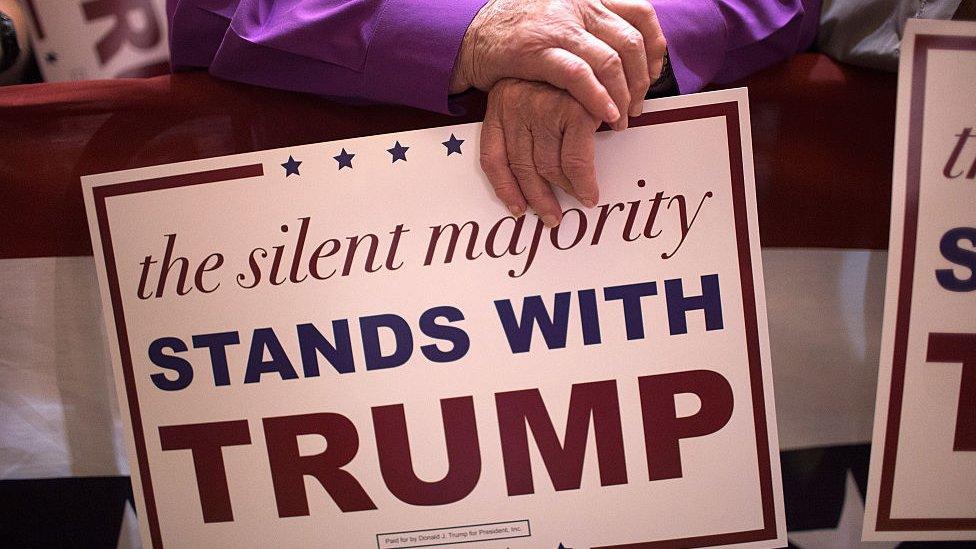
Polling has shown that these are the core voters for Republican presidential nominee Donald Trump. His positions on trade and immigration have resonated with working-class voters. But the question is - Are there enough of them, especially in battleground states, to carry him to victory?
Don Levy, who conducts polls in New York state, says Mr Trump would have to win these voters at a "tremendously high margin". Mr Trump's supporters are optimistic that can happen and often pose these two complementary theories:
Many of these voters have stayed home in previous elections and will turn out for Mr Trump
Some of Mr Trump's voters aren't open with pollsters about their support because the candidate is not "politically correct"
Mr Levy, the director of the Siena College Research Institute, says he isn't buying either scenario. In his polling, he says that voters have not been reluctant to voice their support for Mr Trump, often keeping pollsters on the phone for long periods explaining why they support the billionaire businessman. And in a race with such unpopular candidates, he expects lower turnout - not a wave of new voters.
Perhaps, most importantly, Mr Levy notes that to get Mr Trump to the White House, he will not need just those men - he will also need their wives.
"There is a lot of talk about the 'Angry White Man' vote," Mr Levy says. "Trump certainly appeals to that group. But many of those angry white men are married to people. He needs to carry 'Mrs Angry White Man' too."
Unfortunately for Mr Trump, his favourability numbers among women are dismal, especially among highly-educated women.
Where they count: So-called "Rust Belt" states such as Ohio and Pennsylvania

White women with university degrees
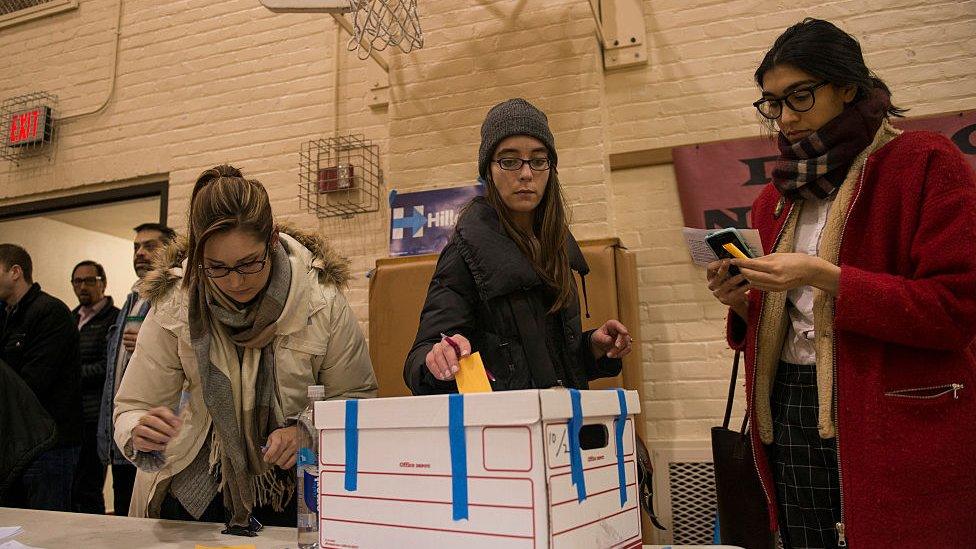
A recent poll showed that 57% of university-educated white women supported Mrs Clinton
A traditionally Republican constituency, university-educated white women are moving firmly into the Democratic coalition. Focus groups have found that highly-educated women have been put off by some of Mr Trump's provocative statements. A Pew Research study found that voters were particularly repelled by an incident where Mr Trump mocked a disabled journalist and another where he implied that Fox News presenter Megyn Kelly was menstruating because she asked a tough question at a debate.
This has helped turn two battleground states - Virginia and Colorado - into likely wins for Democratic presidential nominee Hillary Clinton. Both states have high levels of educational attainment - 43% of Colorado residents have a university degree, while 44% of Virginia residents are university graduates.
Mr Trump has alienated women pretty effectively, says Virginia pollster Harry Wilson of Roanoke College. "And once people are turned against you, it's difficult to get them back."
Where they count: Virginia and Colorado

Anti-Trump Republicans
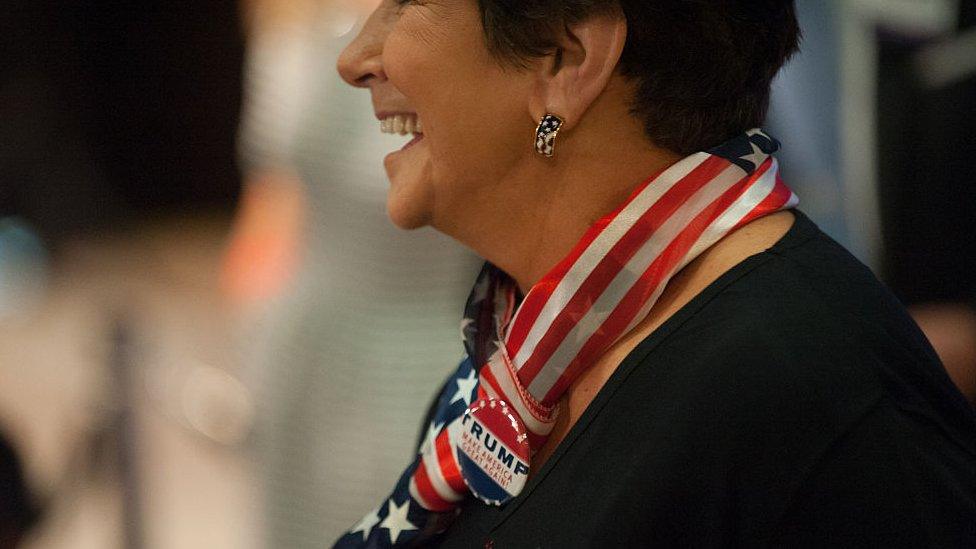
Mr Trump's support has eroded in recent weeks
In mid-July, Mr Trump was enjoying a slim lead in the polls, signalling that the New York billionaire could pull off a narrow win in November with a united Republican coalition. But by August, after a series of inflammatory statements, Mr Trump's popularity had cratered. Frank Luntz, a news analyst for Fox News and CBS who specialises in polling and focus groups, is in search of the voters Mr Trump lost.
He says it is a broad group, but it skews younger and more female. He believes the former supporters were attracted to Mr Trump's message that the "system is broken" and an outsider is needed to fix Washington.
"But now they see Trump as mean-spirited, unkind and just hateful," Mr Luntz said.
There is time to win them back, but the veteran political analyst is doubtful Mr Trump will use the time wisely. He says the Republican nominee lacks focus to stay on a message of change, which appeals to these disaffected supporters.
"The more fed up you are with the system the more likely you are to vote for Donald Trump, no matter where you are on the political spectrum," Mr Luntz said.
Where they count: Florida, Ohio and Nevada

Puerto Ricans
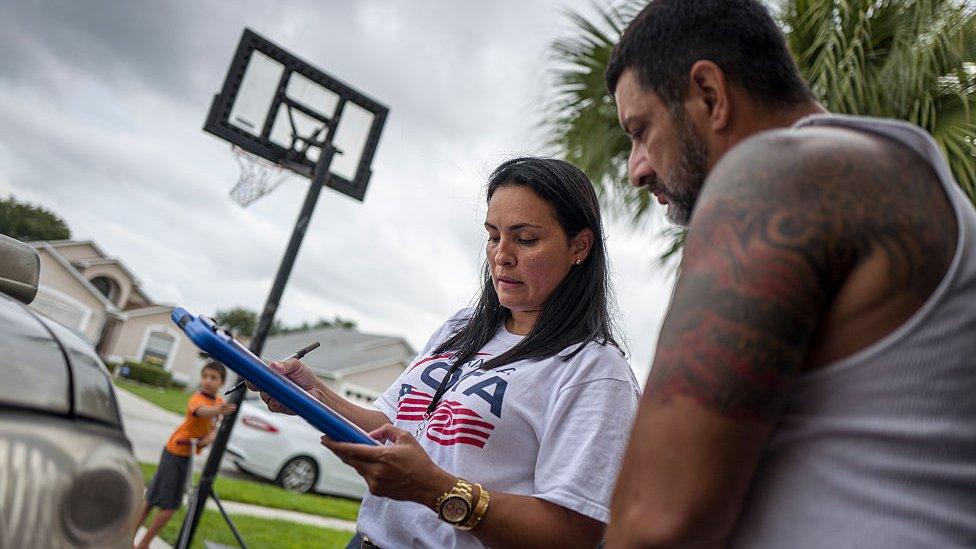
Get-out-the-vote activists have been working to register Puerto Ricans living in Florida
In recent years, Puerto Rico has seen an economic downturn that has sent residents of the US territory to the mainland in search of better opportunities. Many have settled in central Florida, potentially tipping the balance of the deeply divided state. Mike Binder, a political science professor at University of North Florida, says more than half of new voters registered in the state since 2012 are Latino, many of them Puerto Rican.
Long dominated by its Cuban community, Florida's Latinos have typically supported Republican candidates. However in 2016, the rising Puerto Rican population - combined with Mr Trump's immigration policies, which some see as anti-Latino - could change that.
These new voters may not be the largest voting bloc, but in Florida a small edge could deliver a win. Polls show an extremely tight race between Mrs Clinton and Mr Trump. President Obama won the state by only 74,000 votes in 2012.
Where they count: Florida

Mormons
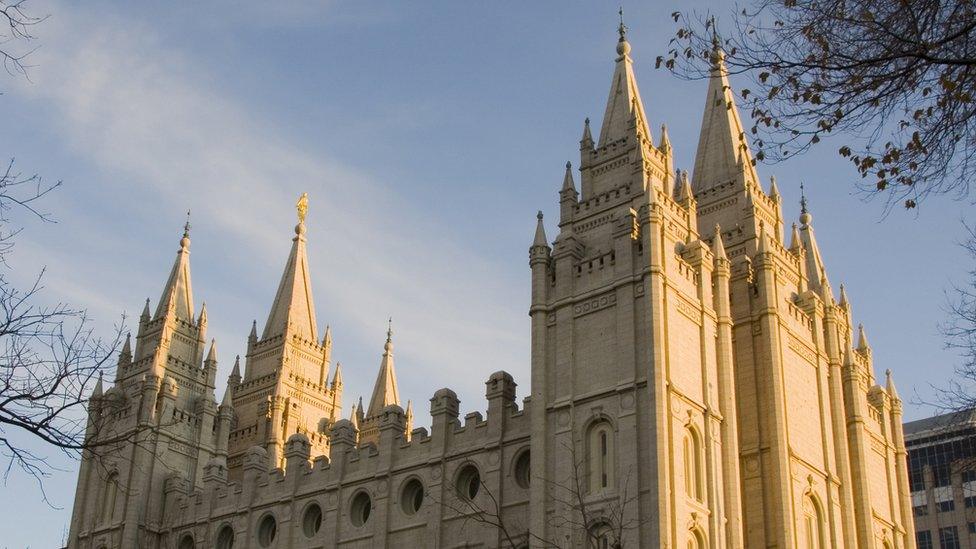
The Mormon Church has been a vocal critic of Mr Trump's Muslim ban
While some Christian groups have either tolerated or embraced the brash persona of Mr Trump, Mormons - typically dutiful Republicans - have soundly rejected the New York billionaire.
Once a persecuted religious minority, many Mormons were deeply unsettled by Mr Trump's plan to temporarily ban Muslims from travelling to the US. Polls have shown that Utah - which hasn't voted for a Democrat since the 1960s - is suddenly not a sure bet for Republicans in 2016.
Two third-party candidates, Independent Evan McMullin and Libertarian Gary Johnson, are also based in Salt Lake City. Their appeal to Mormons further complicates Mr Trump's efforts to eke out a victory in Utah. Mormons, along with a rising Latino population, could also sway the vote in neighbouring Arizona. Polls there show a tight race, with Mrs Clinton leading in some surveys.
Where they count: Utah and Arizona
